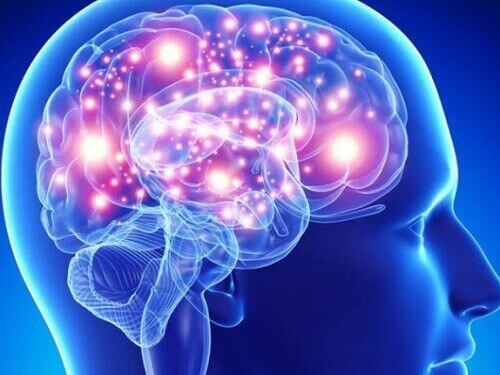The Damaged Psyches of Abused Women


Written and verified by the psychologist Bernardo Peña
The fight to end abuse against women is a task that everyone must become involved in. What are the long term effects that abused women have to go through?
Not long ago, UN Women—the United Nations organization dedicated to promoting gender equality and women’s empowerment—was established. This organization fights things like sexual violence against women during armed conflicts.
It’s certain that men also suffer from assault, harassment, and physical or emotional abuse. Nevertheless, UN data shows that nearly 35% of women around the world have suffered from some type of violence.
You might like: 6 Characteristics of Strong Women
These figures have a significant impact, without a doubt, and more so if we look at nations where legal or social protection is not extended to women. A clear example of this is in India, where almost 92% of the female population has suffered from some kind of aggression.
The worst wounds are not always the ones you see on the outside. A hit, a broken bone, or a slap is more than just an attack on the body.
The injury goes much deeper. Abuse causes serious neuropsychological consequences that we’ll explain below.
The Impact on Abused Women’s Psyches
Currently, there are a number of studies that reveal how abuse affects the brains of children. It triggers deep trauma that subsequently impacts how they mature and learn to balance their emotions.
That being said, what happens to the brain of an adult? Abused women can endure very complex and long-lasting psychological damage.
In many cases, a person who is happy, confident, and with good self-esteem will find that their emotional strength, their fortress, is broken down little by little through abuse.
You might like: Anxiety attacks: what no one understands
In addition, far from what many may think, violence can affect any woman, regardless of her status, age, religion, or culture. However, there is indeed an increased incidence in disadvantaged settings or in developing countries.
One important fact that must be considered is that there are currently many adolescent girls who suffer from psychological abuse from their partners.
Let’s look in greater detail how physical and emotional violence impacts the female brain.

The Connection Between Abused Women and Depression
According to a study published in ScienceDaily, women who suffer from years of domestic violence have a higher risk of depression.
The study was carried out by a group of researchers from the Institute of Psychiatry, Psychology, and Neuroscience at the King’s College of London (England), the University Institute of Mental Health in Montreal (IUSMM), and at the University of Montreal (Canada).
Abuse affects a woman’s health and increases her risk of suffering from depression, anxiety, or even psychotic disorders.
Furthermore, the impact of these situations can be worse if the woman has suffered abuse or mistreatment since childhood.
Neurological injuries
When we talk about brain injuries, we have to distinguish between two basic types:
- Traumatic wounds, which are caused by physical attacks.
- Cognitive disorders that are the result of trauma, violence, and abuse suffered.
For the first case, neuroscientists tell us the traumas from physical assault and domestic violence are generally easy to identify.
- There may be direct trauma to the head that can occur on occasion or over time. Doctors can observe these traumas through diagnostic testing.
- Similarly, there can be short losses of oxygen during an attack, times when the brain doesn’t receive enough oxygen. This is, without a doubt, something incredibly serious.
- All of this results in memory loss, lack of concentration, difficulty in making decisions, slowed communication or even physical movements.

Cognitive and emotional wounds
We’ve already seen that physical abuse causes serious consequences that can affect a woman for the rest of her life. However, no less important are the wounds that affect emotional and psychological balance.
Sometimes it only takes one blow to the head to seriously affect attention, memory, and cognitive processes.
It’s been found, for example, that the levels of cortisol in the saliva of abused women are very elevated.
Additionally, the brain suffers from a type of post-traumatic stress that’s so high that it triggers not only an obvious cognitive decline but also a sense of being defenselessness and profound fear.
To conclude, all of the irreversible neuronal impacts on abused women can turn their world upside down. These are devastating situations.

It’s critical that we all become more aware of this reality that, sometimes, is much closer to you than you think.
Damage and wounds from abuse can break the mind and soul of a woman. Therefore, it’s important to rise up and count on the help of society as a whole to confront this reality.
All cited sources were thoroughly reviewed by our team to ensure their quality, reliability, currency, and validity. The bibliography of this article was considered reliable and of academic or scientific accuracy.
- ONU Women. Hechos y cifras: Acabar con la violencia contra mujeres y niñas. UN Women [Internet]. [citado 9 de enero 2019]. Disponible: http://www.unwomen.org/es/what-we-do/ending-violence-against-women/facts-and-figures
- Heim CM e. Decreased cortical representation of genital somatosensory field after childhood sexual abuse. – PubMed – NCBI [Internet]. Ncbi.nlm.nih.gov. 2019 [citado 9 de energo 2019]. Disponible: https://www.ncbi.nlm.nih.gov/pubmed/23732967
- Gómez de Terreros, M. Maltrato psicológico.Cuad Med Forense [Internet]. 2006 [citado 9 de energo 2019]. Disponible: https://doi.org/10.4321/S1135-76062006000100008
This text is provided for informational purposes only and does not replace consultation with a professional. If in doubt, consult your specialist.








